
Coconut oil has been used in cooking for decades but within the past several years its popularity as a holistic remedy has skyrocketed. Supporters rave about the numerous health benefits of coconut oil for humans. In fact, it has become so popular that some people are starting to give it to their cats for the same benefits they are seeing in themselves.
Is coconut oil beneficial or harmful for cats? Well-meaning cat owners should learn the facts about coconut oil before administering it to their cats.
Coconut oil comes from mature coconuts and can be used in both food and health products. It contains saturated fatty acids called medium-chain triglycerides (MCTs). MCTs, which also include palm kernel oil, are more readily digested than long-chain triglycerides (such as olive oil, soybean oil, avocado oil, and fish oil). As such, MCTs are considered a better source of quick energy than long-chain triglycerides and are less likely to turn into fat in the body. MCTs can be composed of different fatty acid chains, including caprylic acid and capric acid, both of which have shown anti-fungal properties in lab studies. They also contain lauric acid, which has shown anti-fungal as well as anti-bacterial and anti-viral properties. Coconut oil can contain caprylic, capric, and lauric acid, so it's understandable that people would be excited about its potential health benefits.
While there are anecdotal claims of coconut oil's health benefits, it is important to understand that these claims are not exactly supported by science. Studies have been largely inconclusive and mainly on human subjects. This is not to say that coconut oil is useless or harmful; it is only to clarify that the effects of coconut oil are not proven in cats.
Coconut oil and other foods containing MCTs theoretically have antibacterial, antifungal, antiviral, and anti-inflammatory properties. Some believe that the MCTs found in coconut oil may also aid in digestion, ease digestive disorders, and prevent hairballs in cats. Another theory is that MCTs may help with brain energy and cognition in older cats.
Some owners feel that the use of coconut oil, either orally or topically, can improve the condition of their cat's coat, and can also alleviate dry or itchy skin. Further theories suggest that it may help with metabolic functions, aid in weight loss, alleviate pain from arthritis as well as improve bone health.
It's important to remember that these are unsubstantiated claims without any scientific proof.
All of the potential benefits mentioned make coconut oil sound like the latest miracle cure-all. You may even be using it yourself and experiencing some benefits. If you think coconut oil might be a good option for your cat, you should first consult your veterinarian for advice. Although coconut oil is not poisonous to cats, it may not be the ideal addition to every cat's diet. Any change in diet, supplements, or medications can affect your cat's health. Depending on your cat, increased fat in the diet may lead to weight gain or digestive issues. Your veterinarian knows your cat's history and physical condition and can help you make the right decision.
In general, the use of coconut oil is not something typically recommended by veterinarians. That is mainly because the potential benefits listed above are reported by owners, not backed up by science. In order to determine the safety and effectiveness of coconut oil, it must be studied in a controlled setting with a large testing population that is repeatable and peer-reviewed. A study on a small number of cats published in 1985 found that the cats would avoid diets with even low levels of MCTs, meaning that cats likely find them unpalatable. So, while your friendly neighborhood pet supply store employee may swear by a coconut oil remedy that worked on their cat, there is really no way of knowing whether it will have the same effect on your cat or not.
If coconut oil might not be all that it's cracked up to be, how exactly do you go about using it for your cat? First of all, do not use coconut oil on your cat until you speak with your veterinarian, who will be able to tell you which uses are appropriate, and in which amounts.
Topical use may seem safe and fairly easy to administer for skin issues. However, your cat will most likely lick off the oil after it has been applied. This means the cat ingests the oil and potentially irritates the skin in that area. You can use an over-the-counter shampoo with organic coconut oil (although most cats don't usually appreciate getting a full bath), but make sure it is intended for use on cats.
Oral use may be an option if your vet approves. Make sure you follow your vet's advice for quantity and frequency and formula. They will be able to tell you a proper dosage so that you don't accidentally give too much at a time and end up with a greasy, diarrhea mess on your hands. They can also advise you on the risks versus benefits of oral coconut oil if your cat is prone to gaining weight, or has a history of pancreatitis, irritable bowel disorder, or any other disease or metabolic condition.
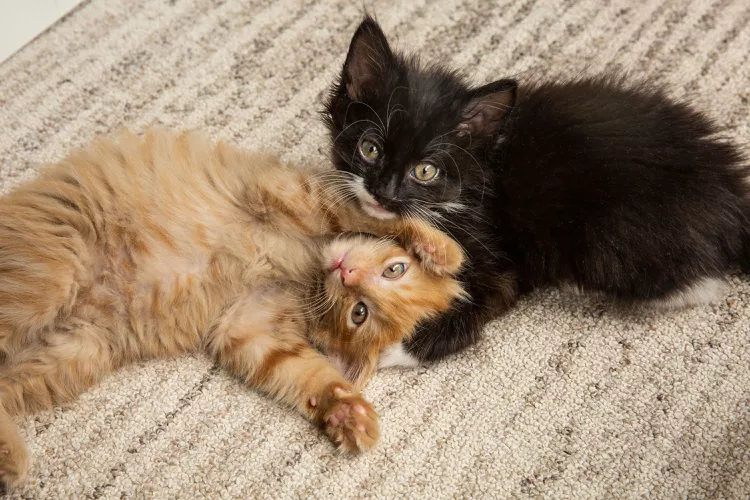
Why Two Kittens Are Better Than One
There are benefits of adopting two kittens, such as more feasible training and companionship between them.
Everything You Need to Know About Raising Your First Cat
Whether you are thinking about getting a cat or just adopted your first one, these are the things to know to make your relationship a lasting one.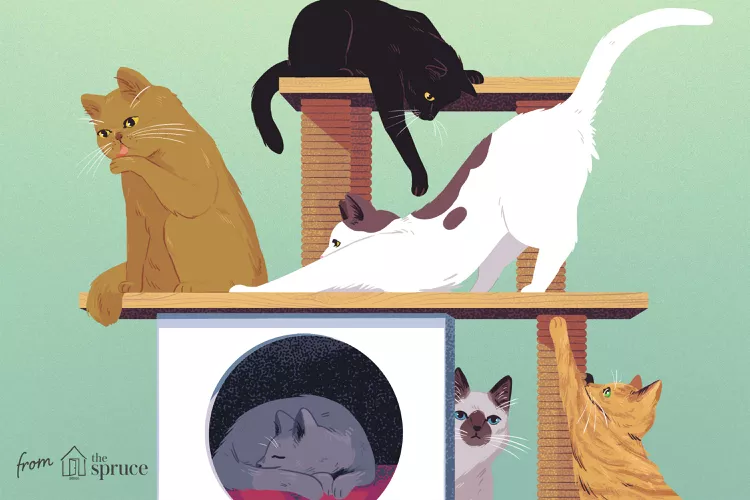
How Can I Tell the Sex of a Cat?
Telling male and female cats apart can be difficult for those who don't know what they're looking for. Here are helpful tips to discover their sex.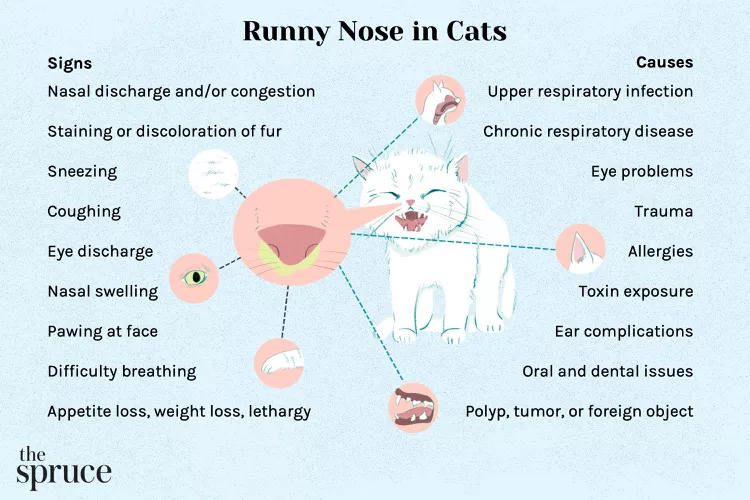
Runny Nose in Cats: Causes and Treatment
Cats get runny noses due to upper respiratory issues, but many conditions can cause this. Learn the causes of runny noses in cats and the associated signs. Find out how vets diagnose and treat cats with runny noses.
How Long Can You Safely Leave Canned Cat Food Out?
You cannot safely leave canned cat food out all day. Twenty to 30 minutes is the max, so give smaller portions and reheat food for later feedings.
Meat Byproducts in Cat Food
Most cat experts recommend premium brands of cat food that avoid ingredients like byproducts and chicken meal. Learn what to look for on the label.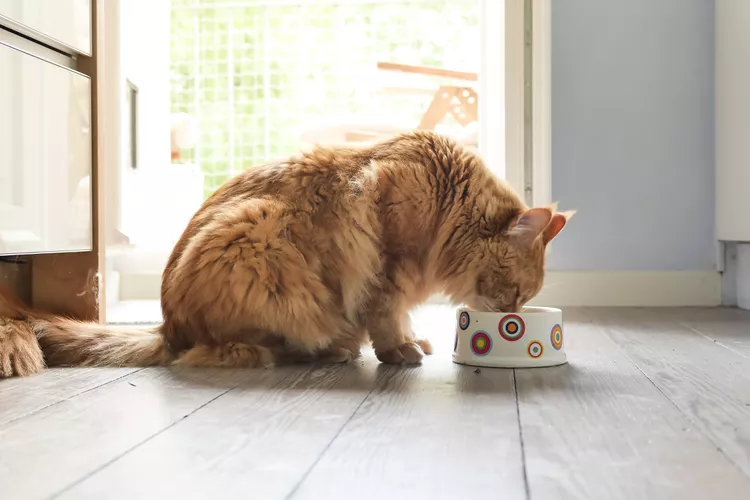
How Much Wet Food to Feed a Cat Every Day
The amount of wet food your cat needs depends on factors such as age, weight, body condition, and lifestyle. Learn how much wet food to feed your cat.
Taurine for Cats
Taurine is an essential animal protein in your cat's diet. Learn more about the various ways it supports your feline's body.
The Different Types of Pet-Friendly Workplaces
Discover the different types of pet-friendly workplaces and the benefits they offer employees. Learn how to create a pet-friendly workplace and the best practices for pet owners.
8 Halloween Safety Tips for Pets
The spooky holiday can be overstimulating and even dangerous for pets. Here's how to avoid the problems caused by toxic candy and incessant doorbells.
Why You Should Keep Cooked Bones Away From Your Dog This Holiday Season
People should be aware of the dangers of cooked bones, especially around the holidays when they might be more accessible to your pup.
Can Dogs Eat Squash? Here's What a A Vet Thinks
Dogs can safely eat squash as long as it's prepared correctly. Find out how to properly feed this versatile fruit to your dog.
16 Small Cat Breeds That Are Petite Purring Machines
Small cat breeds like the Singapura and munchkin may be smaller than an average housecat, but they leave a giant imprint on your heart.
10 Best Cats With Big Ears
Cats with big ears often look extra endearing. Check out some common big-eared cats, including the Abyssinian, Devon Rex, Siamese, Sphynx, and more.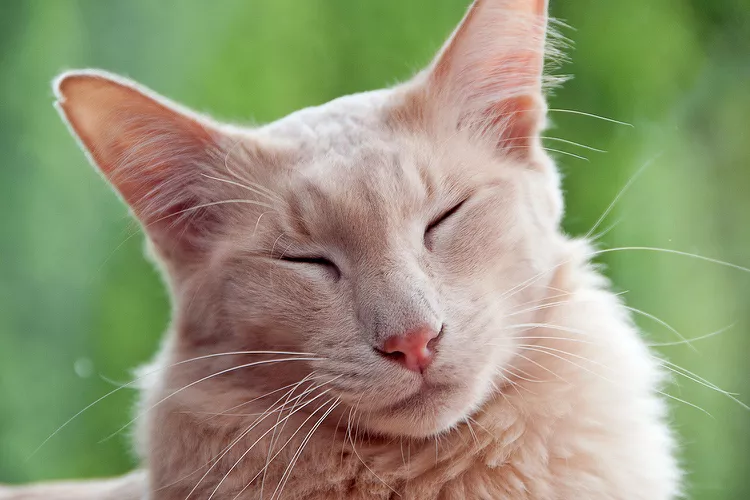
Javanese (Colorpoint Longhair): Cat Breed Profile, Characteristics & Care
The Javanese is a semi-longhaired, color-pointed cat of Siamese type. They are related to the Siamese, Colorpoint Shorthair, and Balinese breeds.
How to Stop Aggression in Dogs
Dog aggression can be a serious behavior issue for pet owners. Learn how to stop aggression in dogs before someone gets hurt.
Should Dogs Be Allowed on Furniture?
Should you let your dog on the couch or in the bed with you? Are there any reasons we should not let dogs on the furniture? Here's what to know.
Why Do Dogs Eat Rocks?
One of the most common non-food items for dogs to eat are rocks. Here's what to know about why dogs eat them and how can you stop your dog from eating rocks.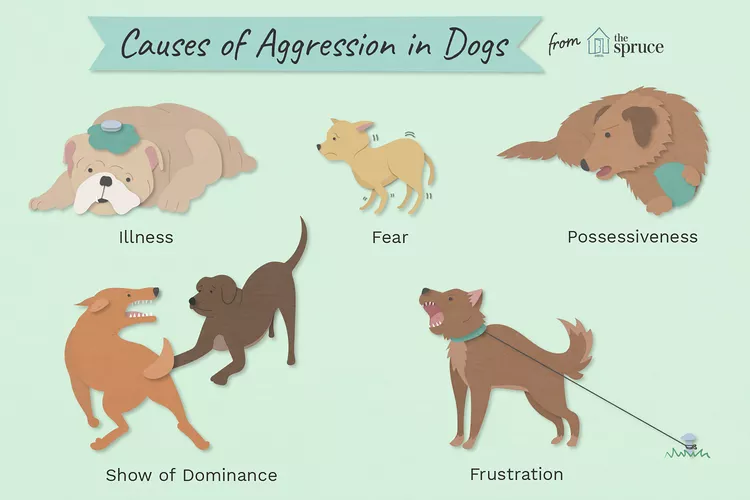
Why Dogs Get Aggressive and How to Stop It
Why is your dog biting you aggressively? Sometimes dogs can become aggressive with little warning. Find out what causes your dog to become aggressive so you can work with the behavior.
Thai Ridgeback: Dog Breed Characteristics & Care
Learn all about the Thai Ridgeback, a rare breed from Thailand. Find out how to care for the loyal dog and where to buy or adopt one.